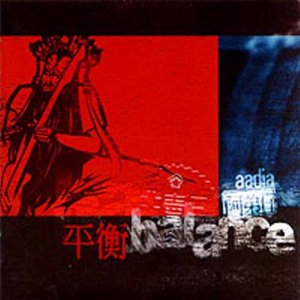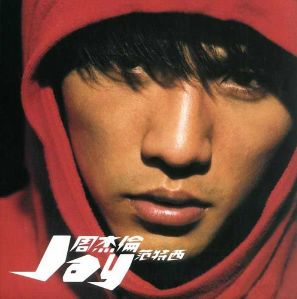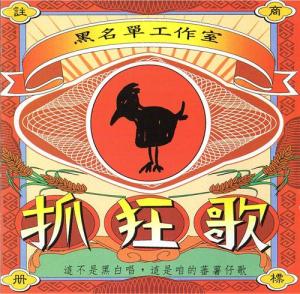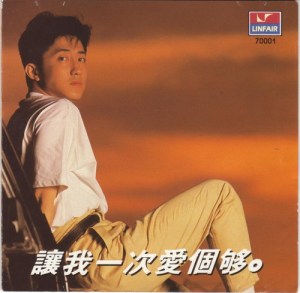
Summer Lei, http://summerplanet.com, 1999
Summer Lei, http://summerplanet.com, 1999
ranking: #73 on 1993-2005 list
With my left eye patched and disabled after surgery, I decided to revisit an album that engages suppressed senses which seem to have evolved beyond the body, an album that tells stories and evokes experiences beyond what our mind traditionally perceives as sound and image. This is an album with a song called “The Invisible Oboist” (看不見的吹奏者), lyrics about “the impending loss of sight, like the arrival of dark” but also of “sound unendingly coming into view.” It was uncanny — no, clairvoyant — that the opening track “Cheek Pressed to the Moon” (臉頰貼緊月球) has a line that goes “my left eye can see scenes miles away.” This is an album about the virtual reach of our senses transformed by technology and the imagination. It is an album about the earth in its most organic state, yet which takes a URL for its title. It is an album that bridges the classical and the futuristic, the analog with the digital, so that we can see further than the eye’s reach.
The first reaction to http://summerplanet.com (臉頰貼緊月球) by Summer Lei (雷光夏) is always how effectively it conjures images purely through sound, an ability even more evident to me this time while listening with my visual impairment. Lei’s sonic images are most literal in the sound collages like “Defeat of Empire” (敗帝國) which uses snippets from a New York subway, or multiple tracks that incorporate sounds recorded from nature. But Lei’s more extraordinary accomplishment is to fuse poetic language with stripped-down melodies to conjure abstract possibilities of life and the universe. The lyrics of “Trade Winds” (貿易風) traverse land and sea, stone and soil, and Lei’s voice flutters through an ethereal melody, while the synthesizer blares past a classical guitar. The nature that comes to view is like a primordial world seen through analog video static, or a turn-of-the-millennium computer animation of landscape, a Final Fantasy digital realism. “Memory, missing, fabrication, tears, curses, destruction, reality, wasteland.” The song floats away.
Lei’s evocation of nature has that late-70s innocent spirit of retreating into the planet’s pre-industrial state that so fascinated Taiwanese folk singers. Her upper register on “Trade Winds” and the album closer “Magnificent You” (壯麗的你) indulge in the spiritual and physical transcendence provided through nature, with a vocal flair reminiscent of Chyi Yu. But Lei’s use of electronic sounds and her abstract and eerie take on ecology is less pre-industrial than post-industrial. The images she evokes are of a new millennial wasteland, a post-apocalyptic loneliness where nature is rediscovered only to show us our own callousness, ignorance, and alienation from what makes us human. Nature is already ironic — it is a website — but when we need it most, we’ll force ourselves to comprehend it once more.
Lei’s vision of the earth is futuristic but what stirs the heart on the album are the moments when the past comes into view through the digital haze. “Disappearing Sonata” (消失奏鳴曲) recalls a decadent past with a retro beat that’s almost danceable. The gorgeous “Forgive” (原諒) is man and nature finding each other in a child-like lullaby (completely with “la la la’s”), in which every keyboard note and guitar pluck is stretched to sentimental limits, a nostalgic reprieve in an album of seemingly inescapable malaise. But it’s the sublime “Old Summer” (老夏天) that conjures the past most hauntingly. Lei’s wandering vocals are joined by a lonely cello. An accordion finds the two in the darkness. Lei speaks of summers past. A piano drunkenly waltzes in, circling her with its repeated arpeggios. This is nostalgia, but one both beautiful and creepy; like David Lynch’s Twin Peaks, it’s the past conjured through hypnosis not recollection.
As I close my one working eye, I see creatures of the present in the wasteland leftover from a vicious past. The accordion reminds me of old-timey French ballads, or Taiwanese nakashi music haunted by Japan and drunk off life’s miseries. The musical minimalism of “Old Summer,” and so much of Lei’s album, has the effect of bringing an unexpected clarity. I see green and black shadows of Hou Hsiao-hsien’s Goodbye South Goodbye, on whose soundtrack I first heard the song. I see headlights peering out to infinity, not a car in the darkness ahead. I see the ocean stretched to the horizon, daring me to see no further.







